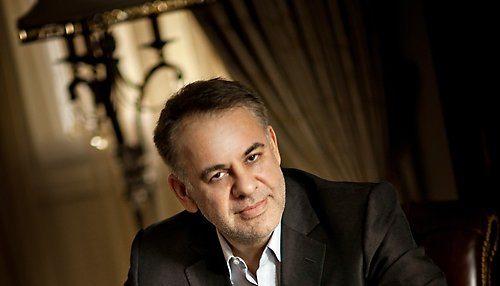For more than 50 years, the large majority of European tourists preferred to book their short-haul holidays through Tour Operators and not independently. It was in mid ’60s when the North Europeans started to travel in a more organized way and the traditional tour operators like Thomson, Thomas Cook and Horizon made their first steps into the world travel industry. Package holidays and their distribution through high street travel agents were at the time very popular. The development of the Internet, especially from 2000 onward, where consumers gained access to a wide range of travel sites changed the landscape. Online Travel Agencies (OTAs) managed to gain a big stake of the market selling rooms either directly to the guests (the agent model) or as wholesalers (the merchant model). In parallel, the rise of low cost airlines contributed significantly in further changing the landscape, since tour operators up until then entirely controlled the ‘holiday air traffic’ with either their own aircraft or through chartering. This was the time that the now well-known “Dynamic Package” emerged and took away from traditional travel agencies a significant percentage of bookings but not the high margins..
Nobody can doubt that in both cases the guest pays more and hoteliers earn less. Traditional Tour Operators put on a margin of approximately 35%-40%. On the other hand the Online Bedbank’s need a lot of intermediaries.
Let’s take an extreme example where the final price of the room can climb up to 50% from that offered by the hotelier rate. A Hotel makes an agreement for a certain number of rooms with the local Destination Management Company (DMC), which in turn sells those rooms onto an Online Bedbank with a mark up. The Online Bedbank needs to make a profit as well, therefore adds another mark up and offers the specific rooms to a consortium of Travel Agents (TA’s). The consortium in turn sells to their member Travel Agents after having added a markup of their own. To take it even further, the member of the TA consortium then sells to a non-member TA or an affiliation and/or marketing company adding further markups. In this extreme but factual example there are five intermediaries connecting the hotel with the guest. What therefore happens to the rate? What the hotelier gets? Finally, the room is offered to the guest at double the rate from that given by the hotelier to the DMC. So the question that thousands of holidaymakers ask themselves every day is: Should I book a holiday break direct or use the intermediaries? The continuous search for differences in prices brought into existence new businesses such as the price-comparison websites. There is now a plethora of them out there.
The situation is of course completely different when we examine city breaks/hotels. Well established OTA’s in this field like Booking.com and Expedia.com have managed to gain the trust of consumers who do not hesitate to book online their hotel and then separately their flights through the traditional airline companies. This is the reason why the prices for travelling to European cities have constant pricing fluctuations based on up to date demand. On the other hand, resort holidays keep the prices up — especially during high season.
Let’s not of course neglect other new entrants such as Airbnb and other proponents of the shared economy who’s room portfolio continues to get incredibly gigantic.
Hotel consolidation is the answer and the only effective way for the European hotel market to change again. Independent hoteliers cannot “confront” the existing situation on their own. If they don’t do something, they have no other way but to continue selling their rooms through the well established -low earnings paths. But if they join forces, if they could merge under common umbrellas with certain service standards so as to gain the trust of the guests and to provide a better product offering. Hoteliers need to act in order to play the “role” of the tour operators and sell directly not only their rooms but why not flights as well in cooperation with the airlines, both scheduled and low cost. Diminishing the intermediaries will bring more competitive prices for the guests and more profits to the hotels, although it is more than certain that traditional tour operators will always continue to be in the game as they have managed to gain the acknowledgment of a big mass of tourists.
The European hotel leisure market is still pretty fragmented and the degree of competition extremely high. The trend of mergers and acquisitions continue as a strategy to gain market share, create added value and assure higher degrees of efficiency. One of the best examples is Marriott’s acquisition of Starwood that was recently announced — the largest of its kind ever seen in the international tourism industry.
But up until the achievement of holiday resort consolidation, margins will make the hotels go around…




